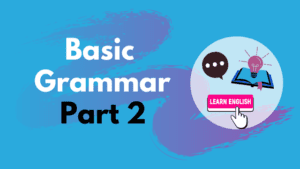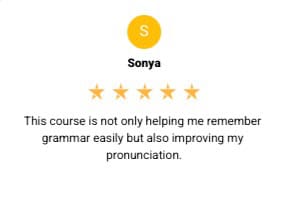7 Ways to Improve your Communication Skills in English
When speaking English, you may know lots of vocabulary and grammar, but still be a terrible communicator.
In order to speak English well and do well on the IELTS Speaking test, you will need to improve your communication skills, as well as your language knowledge.
It’s important to practice these daily to improve your communication – like confidence, it is a muscle you can develop over time.
Table of Contents
Communication tip #1: Speed
Fluency in English is not determined by your speed, so don’t speak too fast. Did you know that effective communicators speak slightly more slowly than normal conversation speed?
Pausing is one of the best things you can do when you are in a speaking situation. It is powerful to pause at the beginning and midway of your speech.
Here are the reasons why:
- Pausing gives you time to think
- Pausing builds trust with the listener
- Pausing helps you use effective phrasing – that means using chunks and pauses in the right place
Let’s take the following sentence:
If I had a lot of money, I would purchase a majestic mansion on the rocky coastlines of Spain.
If we break it into chunks it might look like the next example below, with a pause at end of each chunk:
If I had a lot of money,
I would purchase
a majestic mansion
on the rocky coastlines of Spain

Communication tip #2: Emphasis
Emphasis allows your listeners’ attention to fall on the most important part of your speech. By using stress, you can convey and emphasize your message more effectively.
But you need to think about stressing the right
- Words
- Phrases
- Ideas
You can do this with:
1. Adverbs
For example:
If I had a lot of money,
I would definitely purchase a new house
2. Change of volume. It increases the volume on the stressed word
We can increase the volume on the stressed words in a sentence. Also, we can emphasis one part of an idea by putting it at the front of a sentence. Try saying the following phrases, and stress the phrase at the front,
What’s _________ about it is….
Is Spain an interesting place to live?
Yes, what’s interesting about it is the beautiful scenery
Yes, what’s amazing about it is the beautiful scenery
What I _____ about it is….
Do you like Spain?
Yes, what I like about it is…
Communication tip #3: Speak clearly
Remember to enunciate your words when you speak so that your listeners can understand you. Open your mouth and speak up!
It’s like a bit of exercising muscles in the gym, so don’t mumble and let your voice be heard.
One of the most effective methods to improve your communication skill in English is to over-exaggerate when you practice.
Practice doing this in front of a mirror and watch your mouth as you speak and enunciate the words.
Try it out – it can be great fun!
Communication tip #4: Simplicity
There are many differences between spoken and written English.
These differences include:
- Simpler language
- Repetition
Good communicators generally use simpler language so the listeners can understand them more easily.
Unlike writing and reading, speaking requires us to repeat a lot of words as most of them are lost or forgotten.
Look at the example below.
Written:
If I had a lot of money, I would purchase a majestic mansion on the rocky coastlines of Spain
Spoken:
If I had a lot of money,
I would buy a huge house
on the coast of Spain
A ‘majestic mansion’ is poetic while A ‘huge house’ is more natural.
What is the significance of the ‘Rocky coastlines’? In this case, it isn’t important, so it can be left out.
When you learn to speak and listen to your audience, they will pay more attention and it will be easier for you.
Now you can see the importance of simplicity in spoken English.
Communication tip #5: Body language
When we say Body Language, it includes:
- eye contact
- facial expression
- gestures
- manner
- your smile
Communication is far more than words. We do communicate a lot without words.
Let’s take a look at a video clip below and notice the body language of this first speaker:
If I had a lot of money,
I would definitely buy a house,
Probably a huge house, on the coast of Spain
What did you notice?
Now let’s see if we can improve it.
Watch the second video clip below and spot the difference.
Communication tip #6: Ideas
Communication is about getting your idea across. It’s not about speaking perfect English.
In order to communicate an idea, you need to have an idea to communicate.
If you don’t have any ideas, then you have nothing to communicate!
Become an avid reader, watch interesting and varied things e.g. Curiosity Stream
As part of your practice, ask yourself this question everyday:
What do you think of _____?
Inserting words such as:
- Science
- Modern Art
- A.I.
- Climate Change
- Driverless cars
Answer questions like this everyday, even in your own language.
Communication tip #7: Copy others
The last tip I have for you to improve your communication skills in English is to copy others.
Spend some time watching great speakers, observe how they communicate and try to imitate everything.
Notice their
- Speed
- Emphasis – volume
- Enunciation
- Simplicity of language
- Body language
- Key ideas
Here are some people you can watch and try imitating their speech:
Take 2 or 3 of their sentences and mimic them. Record yourself until you sound and look just like them!
Why does ‘imitating actors’ work?
- Identity is a key part of language speaking.
- When you ‘pretend’ to be someone else (in this case an English actor), it is sometimes easier to pick up the right pronunciation and intonation.
- You stop being you, and become someone else.
All of this helps to improve your Communication Skills. But wait, there’s more! I have a bonus tip for you.
Bonus tip
The most powerful question great communicators use!
What do you mean exactly?
This question:
- Makes the other person think you are interested in them and their ideas
- Builds trust
It’s also a question you can ask the examiner in the IELTS Speaking test, if you don’t fully understand the question (especially in Part 3).
I hope this helps you see that good communication is not just about good English. There’s so much more to it.
If you liked this article, leave a comment below!
Improve your Speaking Skills with this Free Course
Crack IELTS Speaking Part 1
Learn to Speak with Confidence in Part 1 of Your IELTS Test!
⭐️⭐️⭐️⭐️⭐️
‘It’s such a great course. I’ve learned so many usages for speaking part 1.’
Zu Htet






16 thoughts on “7 Ways to Improve your Communication Skills in English”
Fantastic tips on improving communication skills! Practical advice on speed, clarity, and body language will definitely help learners.
Thank you for all thıs informatıon
You are welcome!
i should take all this and apply first to myself .
KEITH thank you very much , we get better and better as we are with you .
I am delighted to help!
Its really helpfull.Thank you for it.I really like to copy great speakers.🙂
Thanks, pleased to hear that
really helpful, thanks for sharing ^^
My pleasure – glad you like it!
Pingback: 7 ways to Improve your Communication Skills in English – ADS mba
thanks in a million for these golden unique effective and fabulous tips . I’ll make a point of following them. Thank you so much
My pleassure, so glad they are useful!
Communication plays a paramount role in our life . Without proper communication we cannot expect excellent job as well as high salary.
So true!
Thanks a lot for giving those useful tips, I’ll try my best to follow those. I think it must help me to be a great communicator in English.
My pleasure – practice lots!